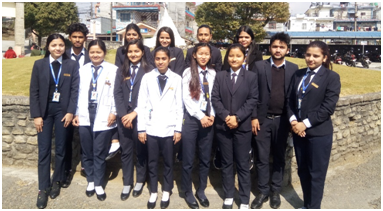
Bachelor of Optometry
Optometry is a healthcare profession that is autonomous, educated and regulated (licensed/ registered), and optometrists are the primary healthcare practitioners of the eye and visual system who provide comprehensive eye and vision care, which includes refraction and dispensing, detection/diagnosis and management of disease in the eye, and rehabilitation of conditions of the visual system, as defined by the World Council of Optometry (WCO).Optometrists play a major role in an individual’s overall health and well-being by detecting systemic diseases, such as diabetes and hypertension. Additionally, doctors of optometry prescribe medications, low vision rehabilitation, vision therapy, spectacle lenses, and contact lenses and perform certain procedures1. They also counsel patients for surgical and non-surgical options that meet their visual needs related to their occupations, avocations and lifestyle.
The major goal of the Bachelor of Optometry (B. Optom) program is to produce a competent, compassionate and community oriented professional optometrist who is a competent primary eye care clinician and expert in vision care.
The B. Optom is a four-year program structured in eight semesters. The entry requirement for admissions in B.Optom is Higher Secondary Level (10+2 Science stream) Biology group or equivalent or Diploma in Health Sciences (Ophthalmology) or Certificate in Health Sciences (Ophthalmology) as recognized by Pokhara University with at least 50% marks ( or C+ in letter grading system or 2.4 in point grade system). Besides fulfilling the basic academic requirement, a common entrance examination will be conducted by Nepal Medical Education Commission for all applicants. Passing in the merit list of this common entrance examination is a must to be eligible to enroll in B. Optom programme.Currently, 34 students from two batches are studying B. Optom at HEI.
